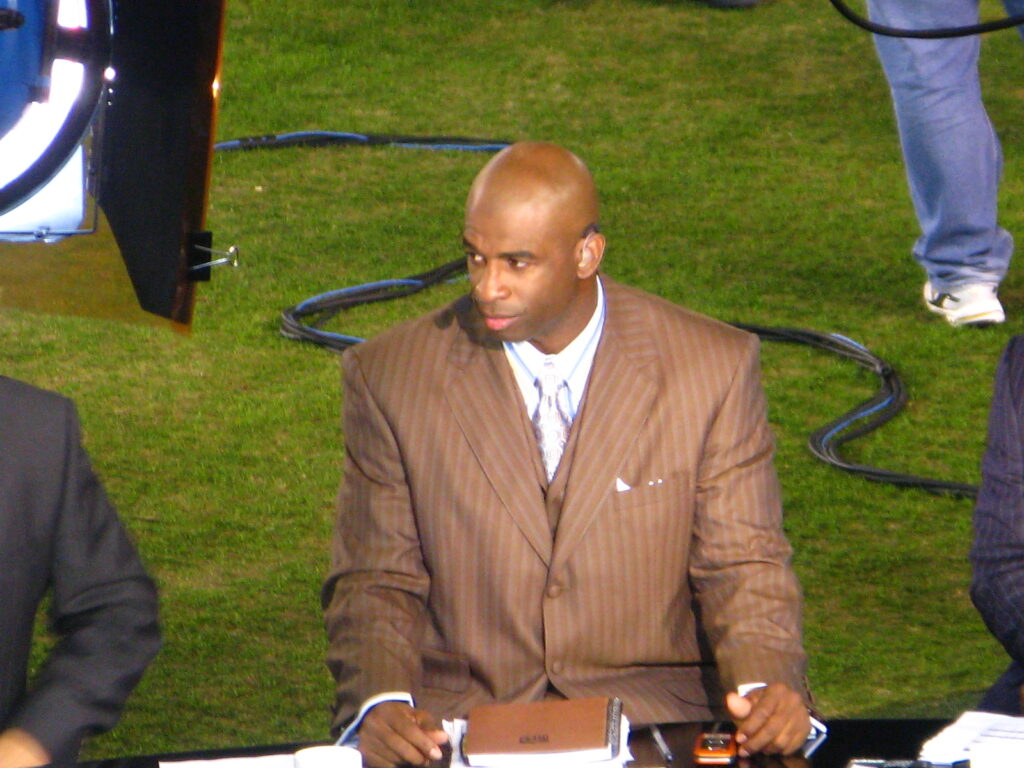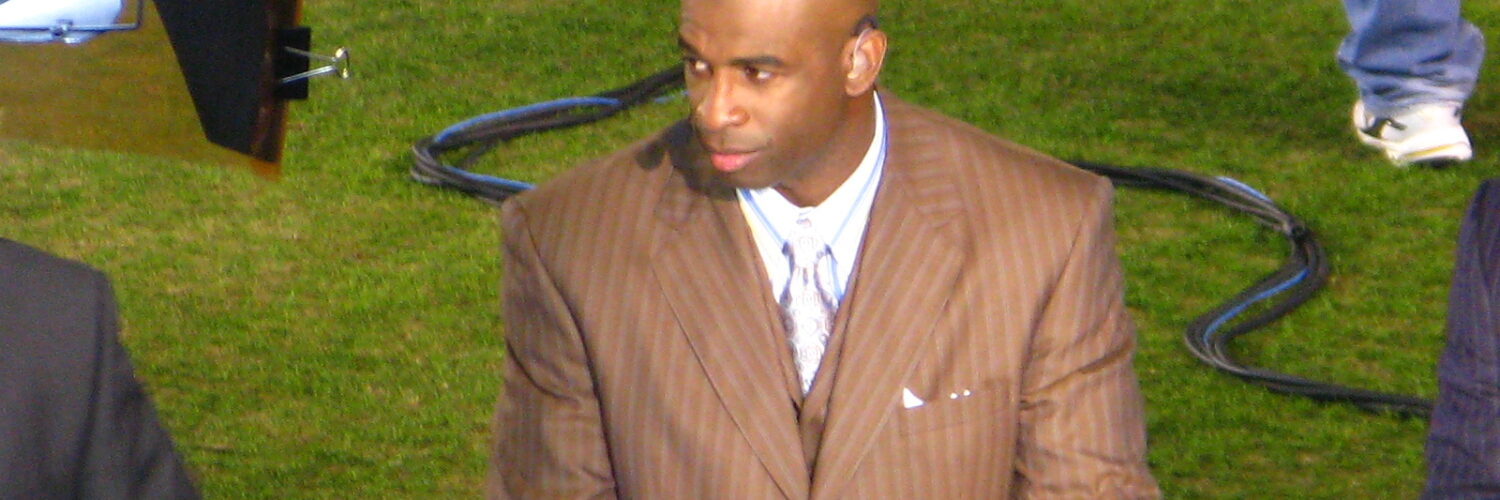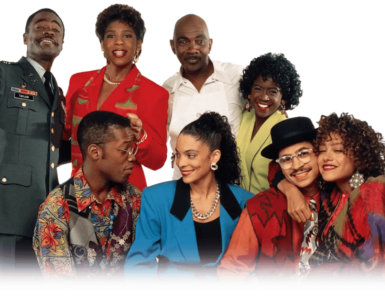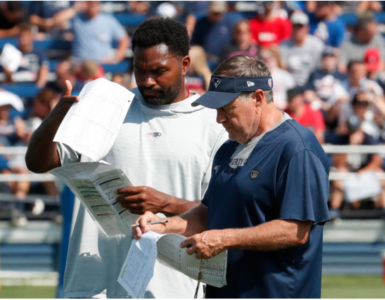
Deion Sanders, popularly known as “Coach Prime,” is a huge name in the sports industry, known for his impressive football and baseball careers. He is the first and only athlete to play in the World Series and the Super Bowl. Sanders won the Jim Thorpe Award in 1988, was fifth in the NFL draft one year later in 1989, played in the World Series in 1992, and then went on to win two Super Bowls in 1994 and 1996 respectively.
After coaching football at the Historically Black College and University (HBCU) Jackson State University (JSU) for three impressive seasons, NFL Hall of Famer Deion Sanders announced that he would be leaving the school to become head coach at the predominantly white institution University of Colorado. While at JSU, he led the team to be Southwest Atlantic Conference champions each year of his tenure.
In doing this, Sanders’ contract went from $1.4 million dollars to $29.5 million dollars. Six of JSU’s players went to Colorado with Sanders—two of them being his sons.
This decision sparked a lot of commentary from fans and HBCU supporters—some expressing understanding, others expressing betrayal. Chance Hollingsworth was the quarterback at HBCU Howard University and was unhappy with Sander’s decision.
“Deion Sanders leaving Jackson State was devastating to hear but I believe it was deeper than just money,” he said, “Everyone has a choice in their actions. Some of the top players in the country went to Jackson State because of him.”
A lot of the controversy stems from Sanders’ many inspirational speeches, in which he emphasized positive change for HBCUs and the importance of being a team. CNN reports that controversy also arose from the expected loyalty from people attending, teaching, or coaching at HBCUs to stay loyal to HBCUs—some even referring to Sanders as a “sellout.” This was especially the case for HBCU football player Noah Thomas.
“I personally feel that it’s best to stay loyal to your team. Especially because Sanders preached a team-first mentality, I believe it’s only right that he fulfill the vision he outlined for Jackson State,” Thomas said.
Some fans are less critical of Sanders’ decision, arguing that he still helped JSU even if he only stayed for three years because he “left the program in a better place than he found it,” per an article from The Goat. One other less critical fan is Kaelah Pyronneau, an HBCU student at Howard University who felt that Sanders did what he could.
“Even though it’s disappointing to have somebody that’s expected to be helping the culture not fulfill what people wanted, he still tried,” Pyronneau said, “It’s his job to take care of his family. It’s not his job or responsibility to pull the Black community out of the racism we have experienced in the sports industry. There’s only so much you can do.”
Timothy McKay is a senior football player at North Carolina State University who also has empathy for Sanders’ situation.
“I think Deion did what was best for him and his family. It may look bad that he took so many players with him, but it’s the new nature of the game,” he said, “I don’t think it’s smart to go where the money is at all. Money is the root of all evil. But it is also important to know your worth. So, I think it all depends on your unique situation. I think this has already drastically changed college football, but it will take time to see the long-term effects.”
Sanders has been active on his Twitter since his departure, tweeting about how beautiful Colorado is and a few subtweets to those disagreeing with his choices.










Recent Comments